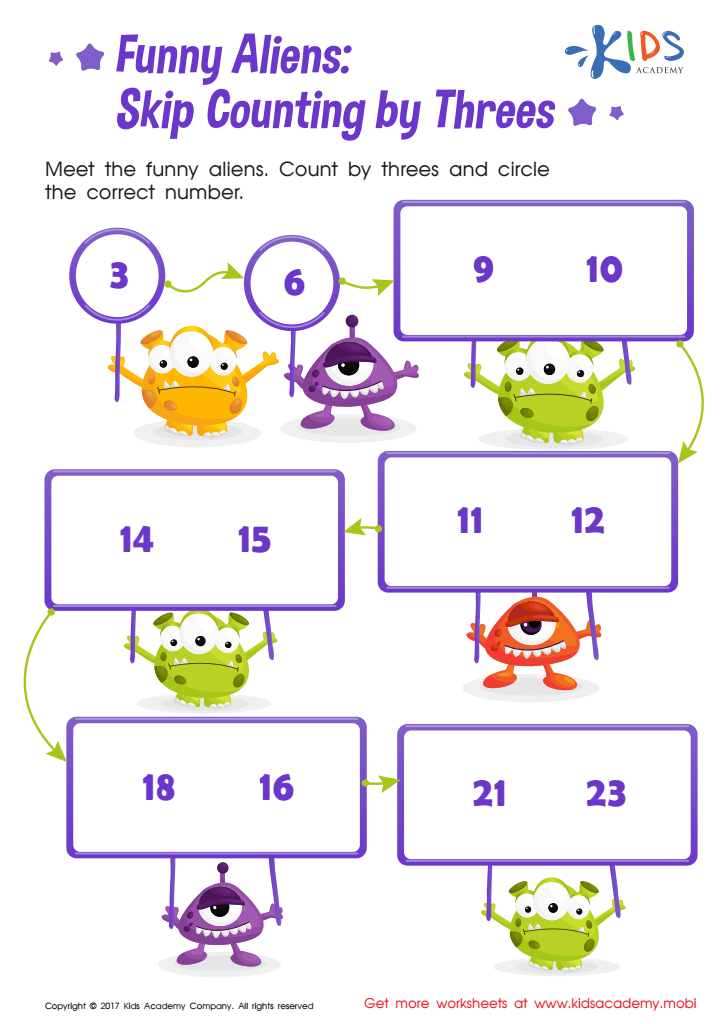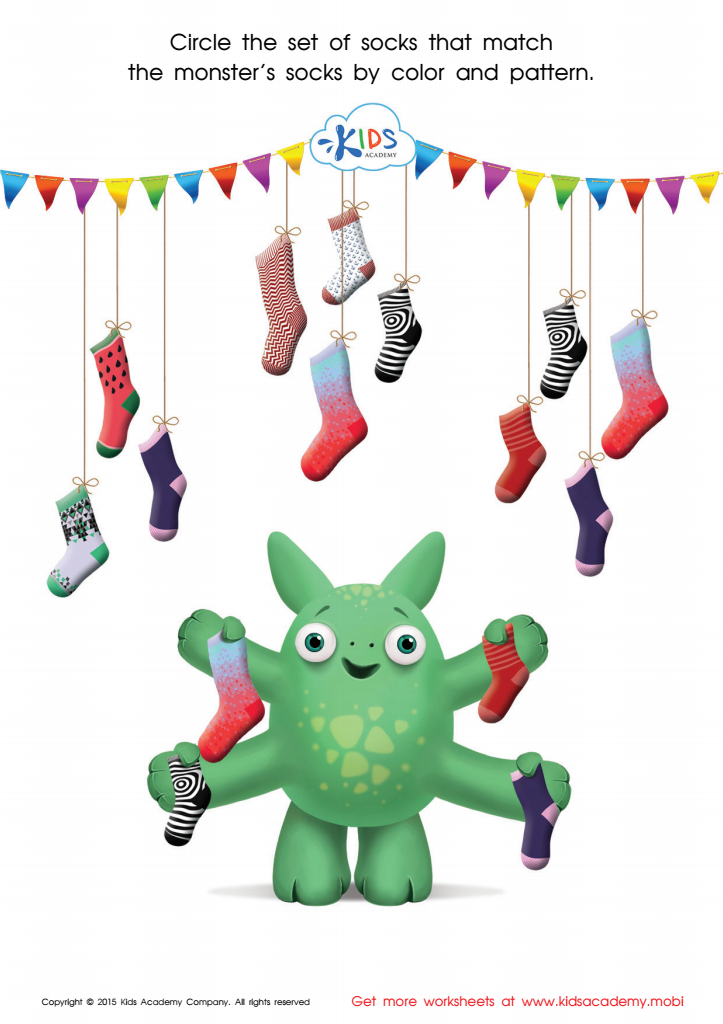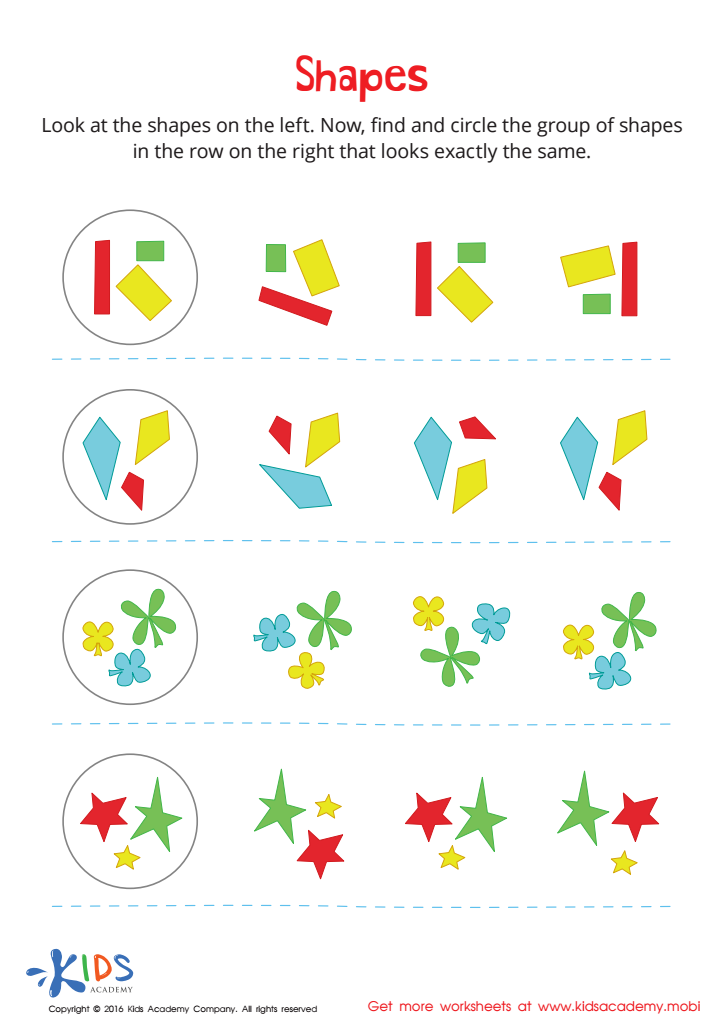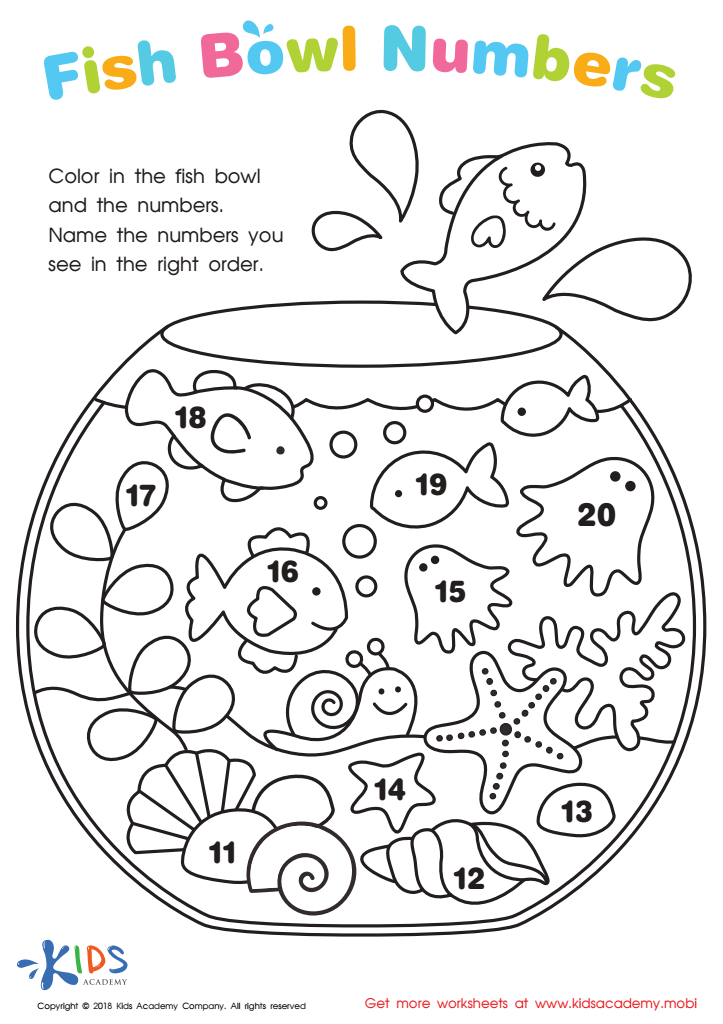Color recognition Extra Challenge Math Worksheets for Ages 4-6
4 filtered results
-
From - To
Discover our "Color Recognition Extra Challenge Math Worksheets for Ages 4-6"! Designed to enrich early learning, these worksheets seamlessly combine vibrant colors with fun math problems, perfect for eager learners. Engaging exercises help children enhance their color identification and math skills through exciting activities like counting, sorting, and matching. Each worksheet is meticulously crafted to provide an extra layer of challenge, fostering intellectual growth and laying a strong educational foundation. Ideal for home or classroom use, these worksheets support young minds in exploring the world of colors and numbers. Elevate your child’s learning journey today!


Skip Counting by 3s: Funny Aliens Printable


Sort the Monster's Socks Worksheet


Shapes Worksheet


Fish Bowl Numbers Worksheet
Investing in a Color Recognition Extra Challenge Math program for children aged 4-6 offers numerous long-term educational benefits. During these formative years, young brains are exceptionally receptive to learning through engaging and multisensory activities. Merging color recognition with mathematical concepts enhances cognitive development in playful and exciting ways, fostering both creativity and logical thinking.
For instance, when children identify colors within math problems, they develop keen observation skills and memory retention capabilities. Moreover, integrating color exercises can aid in understanding abstract math concepts, like sorting, counting, and pattern recognition, in a tangible manner.
Teachers and parents who incorporate such dynamic learning methods help anchor foundational skills that contribute to academic success in later years. Additionally, these activities can appeal to different learning styles—visual, auditory, and kinesthetic—that better cater to young learners' needs. Colored math challenges can motivate children who might otherwise find traditional math tasks daunting, making the educational process enjoyable and less intimidating.
Ultimately, engaging in Color Recognition Extra Challenge Math empowers children to not only excel in mathematics but also strengthens a broader set of cognitive and fine motor skills that underpin future educational achievements. Constant parent and teacher involvement ensures adaptive and successful learning trajectories for young minds.
 Assign to My Students
Assign to My Students




















